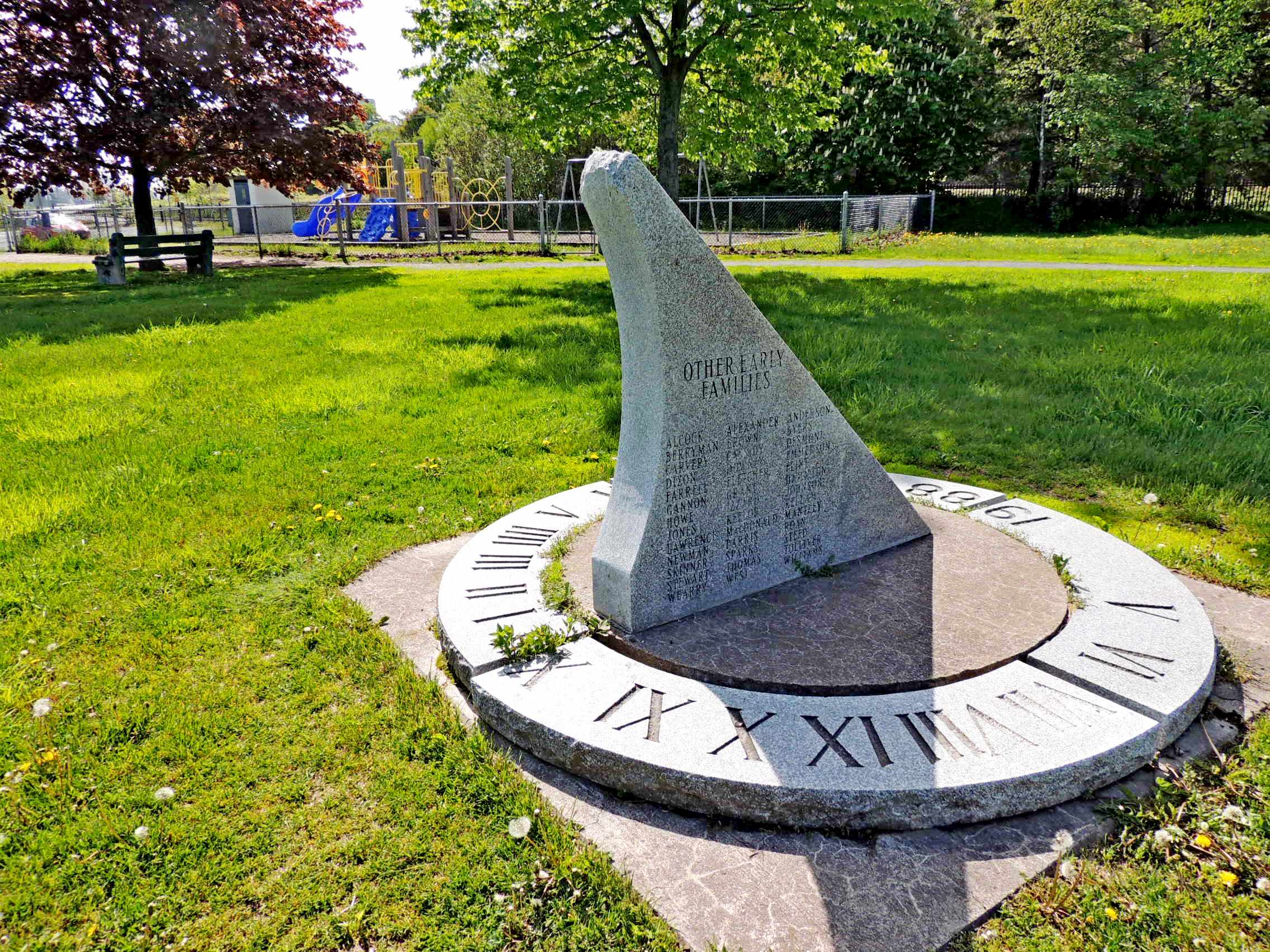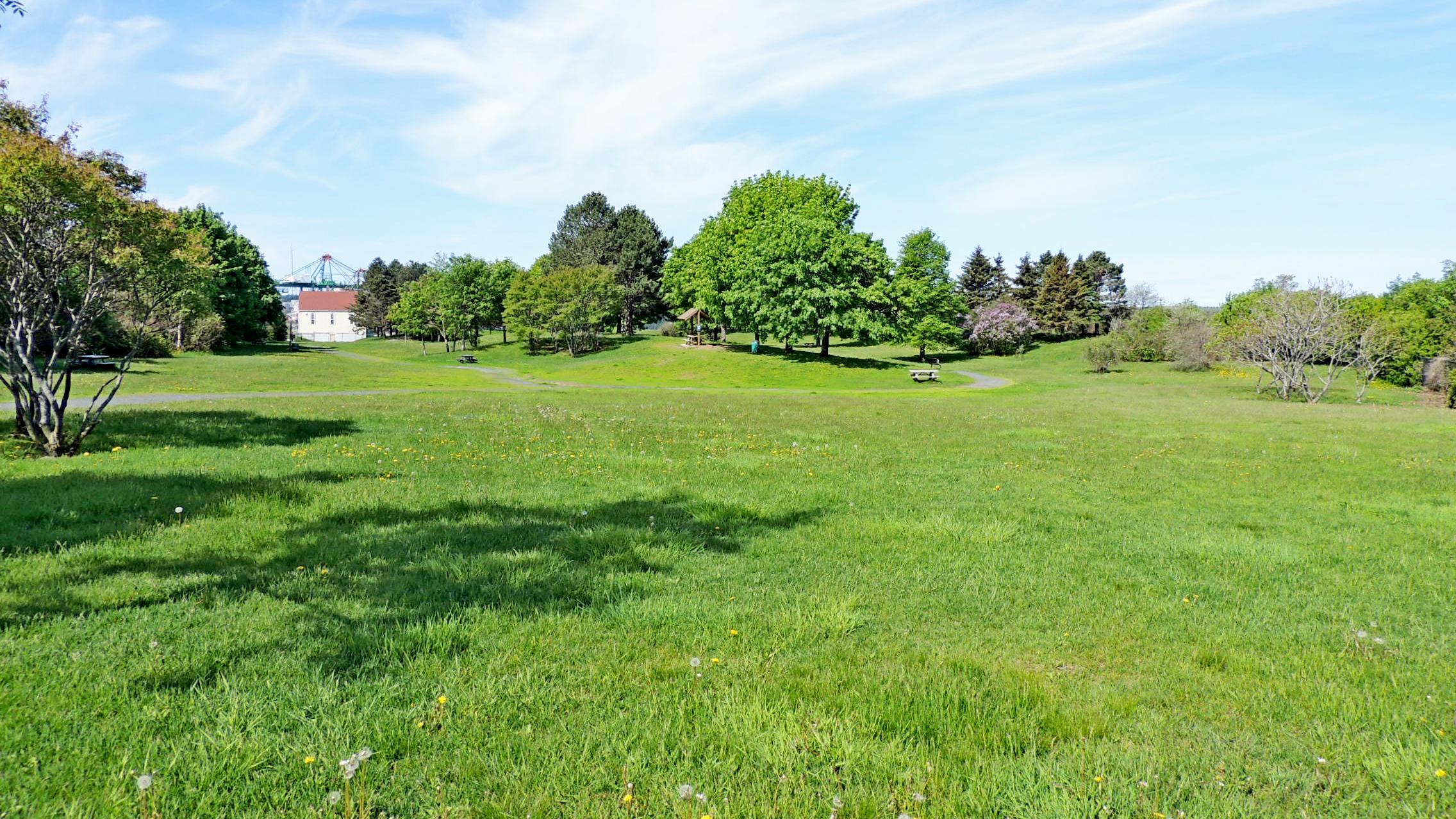|
 Africville - Halifax, NS Posted by:  T0SHEA T0SHEA
N 44° 40.518 W 063° 36.997
20T E 451127 N 4947066
One of the darker periods in Canadian history is the story of Halifax's Africville and the treatment of the African Canadians who lived there.
Waymark Code: WMY884
Location: Nova Scotia, Canada
Date Posted: 05/08/2018
Views: 1
Many former American slaves who immigrated to Canada gravitated to the city of Halifax, creating a community on the edge of town which became known as Africville. Segregated into what was essentially a ghetto on the north western corner of downtown Halifax, the inhabitants were subjected to terrible living conditions for over a century, until their neighbourhood was bulldozed, leaving them homeless and destitute.
In the park about 275 metres northeast of the Seaview African United Baptist Church is this stone sundial which is also a memorial, dedicated to the black settlers and the former residents of Africville. A rather impressive sundial, it consists of a grey granite gnomon standing on a red granite circle which is surrounded by grey granite arcs with roman numerals inscribed for the hours, and the date, 1988. Following is the memorial inscription from the east side, while the west side contains inscriptions of family names of former Africville residents.
(July 29, 2011) – Seaview Park was officially renamed “Africville” at a ceremony held this afternoon. Renaming the park fulfills one of the promises made as part of the agreement Halifax Regional Municipality (HRM) reached with the Africville Genealogy Society in February 2010...
...A predominantly African Nova Scotian community, Africville stood on the shores of the Bedford Basin for 150 years before its homes and the Seaview United Baptist Church were removed by the former City of Halifax. Approximately 400 people were relocated throughout the city at that time...
...In February 2010, Mayor Kelly delivered an official apology to the people of Africville and revealed the terms of an agreement that included the following provisions for HRM:
$3 million was contributed toward the reconstruction and operation of the Seaview United Baptist Church to serve as a memorial to Africville;
2.5 acres of land was provided at Seaview Park to the Africville Heritage Trust Board that was established subsequent to the agreement. The replica Church, which will include exhibits depicting the story of Africville, is now under construction by the AHT;
A park maintenance agreement is being developed between the Africville Heritage Trust and HRM for the lands now known as Africville (formerly Seaview Park)
From the Halifax Regional Municipality
In the park about 275 metres northeast of the Seaview African United Baptist Church is this stone sundial which is also a memorial, dedicated to the black settlers and the former residents of Africville. A rather impressive sundial, it consists of a grey granite gnomon standing on a red granite circle which is surrounded by grey granite arcs with roman numerals inscribed for the hours, and the date, 1988. Following is the memorial inscription from the east side, while the west side contains inscriptions of family names of former Africville residents.
SEAVIEW
MEMORIAL PARK
LAND DEEDED
1848 - 1969
DEDICATED IN LOVING MEMORY OF
THE FIRST BLACK SETTLERS AND ALL
FORMER RESIDENTS OF THE COMMUNITY
OF CAMPBELL ROAD, AFRICVILLE AND ALL
MEMBERS OF THE SEAVIEW UNITED
BAPTIST CHURCH.
FIRST BLACK SETTLERS
WILLIAM BROWN
JOHN BROWN THOMAS BROWN
TO LOSE YOUR WEALTH IS MUCH
TO LOSE YOUR HEALTH IS MORE
TO LOSE YOUR LIFE IS SUCH A LOSS
THAT NOTHING CAN RESTORE
ERECTED 1988

A CNHS plaque has been mounted at the south end of Seaview Park, aka Africville Park, along Africville road. The church is a replica of the original Africville Church, built by the residents of Africville in 1849. Within the church is the Africville Museum, a museum which attempts to relate the story of the residents of Africville. Read more of the Africville story below.  AFRICVILLE TODAY
AFRICVILLE TODAY
Africville, Halifax
Africville was a small settlement that former American slaves established in Nova Scotia after the War of 1812. It was situated on the edge of Halifax, on the Bedford Basin, in the north end of the city. Its occupants never numbered more than about 400. From the time of its founding in the 1840s until well into the twentieth century, they owned their land, worked at various jobs, fished and raised crops to survive. There were a few core families, and community life was tightly knit, centred around the church. While the majority of Halifax's Black population did not live in Africville, it was home to those who wanted to live in privacy, relatively free from the racist attitudes of the predominantly white population.
In a time when people of colour had no human rights or political voice, Africville's residents experienced the direct and severe effects of discrimination. Officials placed no value on their interests and concerns. As a result, essential institutions and facilities that other neighbourhoods rejected were placed on the doorstep of Africville – Rockhead Prison (1853), the city's night soil disposal pits (1858), an Infectious Disease Hospital (during the 1870s), a Trachoma Hospital (1905), and finally, an open city dump and incinerator (in the early 1950s). The city encouraged smelly, dirty industries to locate near Africville, and failed to install water service, sewage or lights. The lack of adequate fire or police protection reflected the city's serious neglect of the residents of Africville. This neglect paved the way for illegal liquor and entertainment enterprises, and a range of squatters.
Africville was destroyed between 1964 and 1969. By the time Halifax began a series of ambitious post-war renewal projects in the early 1960s, the community had come to be regarded as a notorious slum. Guided by social planners, the city announced that it would relocate Africville's residents, promising to give them better housing, and more equitable social and economic opportunities. Ignoring the resistance of the Africville community, Halifax expropriated the townsite, then razed it to the ground.
The residents were dispersed. It was only after they settled elsewhere that they realized they had lost the heart of their community life, their circle of support and the place where they had a sense of belonging. Inspired by the American Black Power movement, community leaders called for action. Community members spoke out against the injustice that had been committed against them, and they took pride in themselves, in Black communities and their traditions. They realized that their very survival was at stake, for Africville's citizens knew all too well that the alternative was destruction. Through their own dedicated efforts, they recovered what was left of their heritage and they spoke out about their loss, as a community.
The site where Africville was located is now a deserted park, but the spirit of Africville lives on. It has become the rallying point for Nova Scotia's Black community, and an impetus for Black people all over North America to fight racism – a symbol of the link between social well being and community heritage.
From Parks Canada
Name: Africville

Street Location: 5795 Africville Road Halifax, NS B3K 2R91

Local Municipality: Halifax Regional Municipality

State/Province, etc.: Nova Scotia

Country: Canada

Web Site: [Web Link]

Memorial/Commemoration: Black Settlers and Pasr Residents of Africville

Date Established: ca 1965

Picnic Facilities: Tables and shelters

Recreational Facilities:
Children's Playground, Boat Launch

Monuments/Statues: Not listed

Art (murals/sculpture, etc.): Not listed

Fountains: Not listed

Ponds/Lakes/Streams/Rivers/Beach: Not listed

Special Events: Not listed

Traditional Geocaches: Not listed

|
Visit Instructions:
One photo of the park that is a different view from the one on the page, and give the date and description your visit.
Add any additional information that you may have about this park. A GPSr photo is NOT required.
|